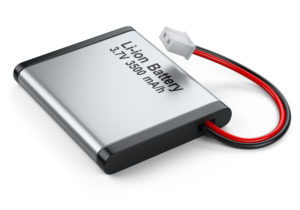In 2020, Samsung Biologics, a leading contract development and manufacturing organization (CDMO), established a research and development facility in San Francisco, California. The facility, the CDMO’s first in the U.S., is equipped for high-quality cell line development and was built to bring Samsung Biologics’ contract development services (CDO) closer to clients. Now, as Samsung Biologics pursues what CEO John Rim calls a “multidimensional growth plan,” it’s looking into the possibility of establishing additional facilities in the U.S., building on its recent success to expand its global footprint.
Demand for CDMO services has surged since the onset of the COVID-19 pandemic, as biopharmaceutical companies need the capacity to produce COVID-19 therapeutics and vaccines at a large scale while maintaining production of other drugs. Samsung Biologics has helped meet this demand, providing fill/finish services for Moderna’s COVID-19 mRNA vaccine and continuing to provide industry-leading CDMO services for monoclonal antibodies at its main facilities in Songdo, South Korea.
The company is now pursuing diversification of its portfolio and the construction of additional facilities.
“The COVID situation has highlighted more of the need to diversify and risk-manage, particularly around supply chain management. It has also highlighted the need for doing things quick,” said Rim in an interview with the Financial Times.
The San Francisco R&D center focuses on the CDO side of operations rather than manufacturing. It has thrived by offering clients faster timetables for cell line development using Samsung Biologics’ proprietary S-CHOice technology. In addition, the location of the R&D center facilitates the process of working with clients based in or near the U.S.
“Samsung Biologics expanded its first global footprint with the opening of a CDO R&D center in the heart of the San Francisco biotech cluster in 2020,” said Rim in a March 2022 letter to shareholders. “We are actively reviewing further geographical expansion plans in other regions in the U.S., Europe, and beyond to expand our business footprint. We aim to provide agile and reliable services to our clients by enhancing our global presence in major biotech hubs.”
The San Francisco R&D Center
Samsung Biologics’ operations in San Francisco focus on cell line development. Using industry-standard equipment, Samsung Biologics can complete cell line development in as few as 14 weeks. Its cell line development technology, S-CHOice, uses Chinese hamster ovary (CHO) cells to research and develop monoclonal antibodies used in therapeutics. The platform can develop high concentrations of monoclonal antibodies, reaching above 7.0 g/L, roughly twice the industry average.
In addition, the San Francisco R&D center’s operations benefit from coordination with Samsung Biologics’ headquarters in Songdo, utilizing a variety of capabilities to aid the R&D process.
Expansion Plans
Samsung Biologics’ plans for expansion come as the company is consistently increasing revenues. The CDMO recorded a 35% increase in revenue in 2021. This growth continued into the first quarter of 2022, with Samsung Biologics’ reporting a record-high revenue of 511.3 billion Korean won (KRW) and 96% year-over-year growth.
“Samsung Biologics’ strong start to the 2022 fiscal year was driven by building momentum around our long-term growth strategy and expanding capacity,” said Rim in a company press release on the first-quarter earnings report. “Our first-quarter financial performance demonstrates a significant and sustained level of customer demand in our services and capabilities.”
International expansion is a pillar of this long-term growth strategy for Samsung Biologics, along with increasing capacity and diversifying the company’s portfolio.
In addition to pursuing possible expansion options in the U.S., Europe, and China, Samsung Biologics is constructing new facilities in Songdo, including a second Bio Campus and a massive fourth plant known as a “Super Plant.” The CDMO is also expanding its portfolio beyond monoclonal antibodies, producing cell and gene therapies in addition to mRNA vaccines and has fully acquired Samsung Bioepis, a biosimilars company founded as a joint venture with Biogen in 2012.
Biosimilars, which offer cost-effective alternatives to biologic reference medicines, have already penetrated the European market, and in his interview with the Financial Times, Rim explained that he expects to see growth in the U.S. biosimilars market.
“The U.S. will start to pick up as well because all the health systems globally are under more pressure to reduce expenses and make [treatments] more available to patients,” he said.
From Leading CDMO to Global Biopharmaceutical Company
With its San Francisco facility, Samsung Biologics has expanded its CDO services internationally and it continues to offer industry leading biomanufacturing capacity in Songdo. The CDMO is now well positioned to build on its success in these areas to become a global leader in the biopharmaceutical industry.
Rim explained the company’s outlook in his letter to shareholders.
“Samsung Biologics achieved all business objectives set for 2021, continuously delivering solid growth in the biologics CDMO business while successfully expanding into new business areas,” he said. “By expanding our business areas, we will evolve to become a global biopharmaceutical company with great responsibilities to better serve our clients, patients, shareholders, and ultimately society.”

